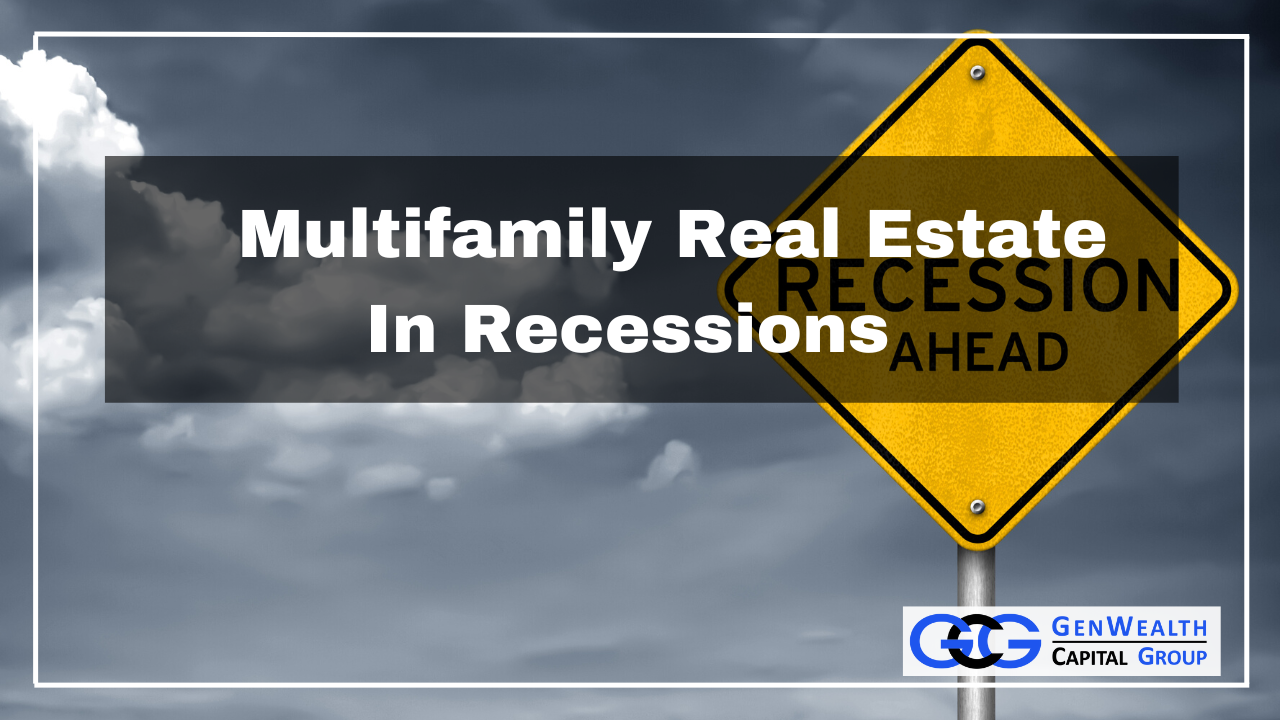Is it finally official? With the latest economic data showing a 0.6% contraction in GDP, let’s call a duck a duck. We are in a recession. Multifamily real estate can be a more reliable and recession-resistant asset during a downturn. It tends to outperform other types of commercial real estate simply because it serves a basic human need – people need somewhere to live.
As multifamily investors, we provide solutions to people’s needs.
There are challenges, however. In past recessions, we have experienced high demand for multifamily real estate while also facing increasing costs to own and manage those apartment buildings properly.
Multifamily Investing Versus Other Commercial Real Estate
During this time of uncertainty, investors are turning to commercial real estate since it’s one of the most stable and tangible investments available. There’s been a dramatic shift of investors toward multifamily buildings since the asset class typically provides a combination of cash flow, appreciation, and tax benefits, even in times of rising interest rates and an unsettling economic outlook.
Other commercial real estate property types available to investors include office buildings, retail, self-storage, and parking lots and garages. Consider what usually happens during a recession: job losses and reduced or lost incomes lead to lagging retail sales. Additionally, as we all wade through the aftermath of the recent Covid Pandemic, people are embracing technology to efficiently conduct business from their homes resulting in rare trips to the office. Therefore, it’s essential to consider consumer behavior and basic human needs while searching for an investment opportunity with a potential recession looming.
With historically low vacancy rates and high demand for affordable housing, experts continue to see rent growth in multifamily assets, albeit less robust than the recording-breaking 2021 growth, despite the threat of an upcoming recession. Here’s why:
Why Multifamily Real Estate Will Continue To Provide Returns
Why can multifamily investments produce solid returns on investment even during a recession? Simply put, people tend to be more frugal during a downturn – spend less, travel less, but continue to require a place to call home. Some people choose to downsize or sell their expensive homes for something more affordable. Others may reduce monthly expenses by moving out of high-end class A units and into remodeled class B or C apartments. Similarly, individuals unable to qualify for home purchases rely on multifamily units. Therefore, the demand for multifamily rentals remains constant, even if it varies by asset class.
Why Investments In Different Asset Classes Are A Smart Decision
Similar to diversifying one’s stock portfolio, one can also diversify a real estate portfolio. Investors within the multifamily sector can invest in class A, B, and C assets as well as in different geographical areas to diversify their holdings. During a recession, some markets across the country may be more deeply affected than others. Other markets may be booming. Remember one fact: real estate is hyperlocal.
Along the same lines, renters may move up or down in asset class within the multifamily space, depending on their budgets and employment situations.
Recession or not, we have a housing shortage on our hands. New construction (class A) multifamily complexes are continuously trying to keep up with the demand. Yet, new construction costs increase when inflation is high, which slows completion. During recessions, developers tend to tap the breaks on new projects that take years to plan and permit. This, in turn, keeps the demand for existing housing high which helps to sustain rent growth.
Conclusion
During recessions and economic downturns, all asset classes can be hurt and endure losses. Investing in assets that supply a basic human need, such as housing, is an overall smart strategy to diversify your total portfolio. At GenWewalth Capital, we will continue to invest in Texas Multifamily assets because this is our trade. We’d be happy to discuss how you can become involved in our future projects!

